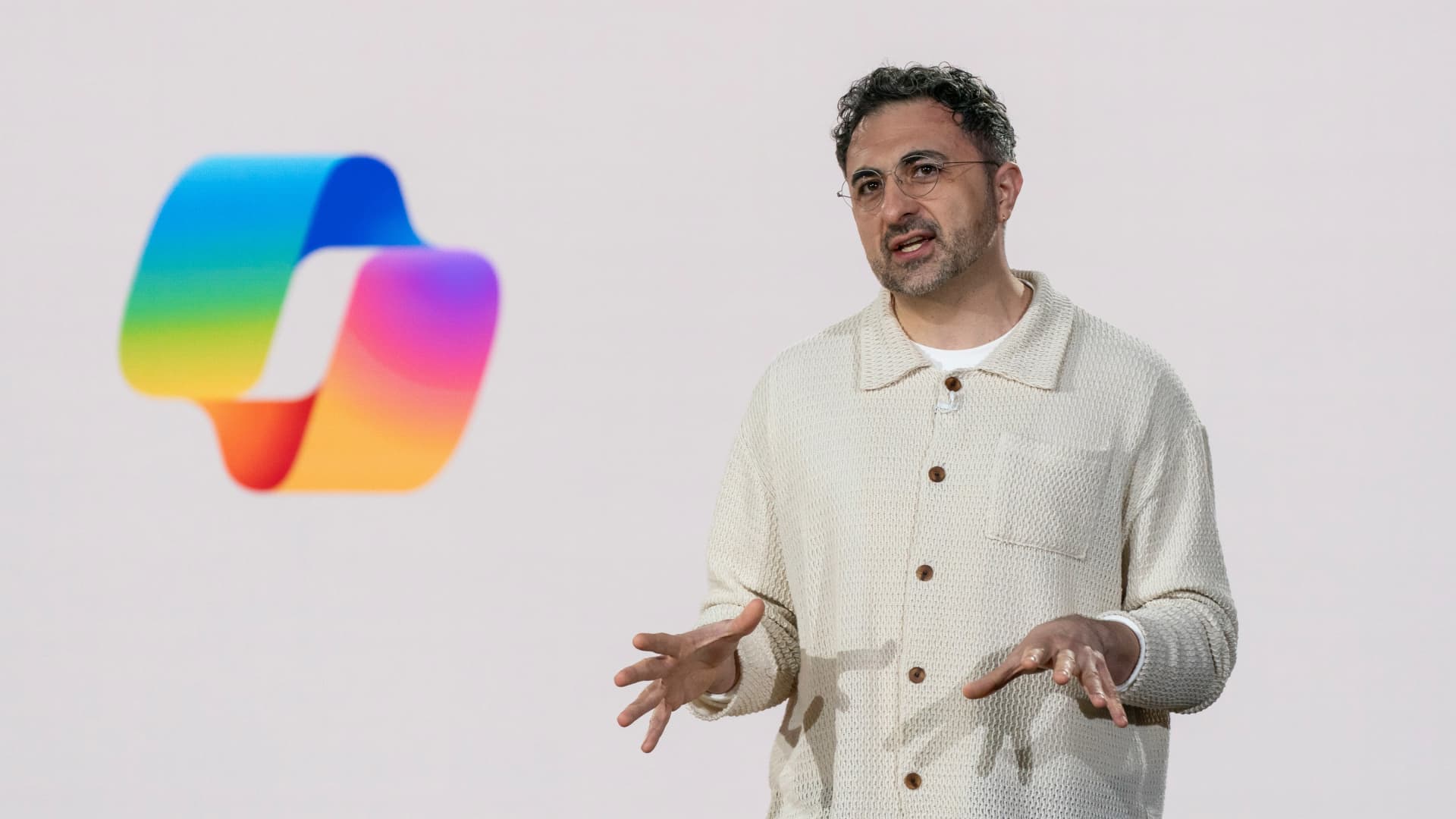Mustafa Suleyman, CEO of Microsoft AI, speaks at an event commemorating the 50th anniversary of the company at Microsoft headquarters in Redmond, Washington, on April 4, 2025.
David Ryder | Bloomberg | Getty Images
Microsoft has largely relied on OpenAI’s artificial intelligence models to power AI features in its key products. It’s trying to lessen that dependence.
The software company said Thursday that it’s begun publicly testing a homegrown AI model that could lead to enhancements to its Copilot assistant for consumers. The MAI-1-preview model is being tested on LMArena, a website where people can conduct evaluations.
“We will be rolling MAI-1-preview out for certain text use cases within Copilot over the coming weeks to learn and improve from user feedback,” Microsoft said in a blog post. The company has published a form where developers can request early access.
Meanwhile, Microsoft remains a key backer of OpenAI and strategic partner to the AI startup that’s now valued at about $500 billion. Microsoft has invested over $13 billion in OpenAI, which in turn relies on cloud infrastructure from Microsoft to run its models.
Microsoft draws on models from OpenAI to power features in Bing, the Windows 11 operating system and other products.
But the companies are clearly moving into competition in various ways. Last year, Microsoft added OpenAI to the list of competitors in its annual report. It’s a roster that for years has included megacap peers Amazon, Apple, Google and Meta.
And in recent months, OpenAI has turned to other cloud providers, such as CoreWeave, Google and Oracle, to meet heavy demand. The startup’s ChatGPT assistant now reaches 700 million people a week.
On LMArena, Microsoft’s new model was ranked 13th for text workloads on Thursday, below models from Anthropic, DeepSeek, Google, Mistral, OpenAI and xAI.
Microsoft said in its blog post that the model was refined with help from around 15,000 of Nvidia’s H100 graphics processing units, and it also has a working cluster of Nvidia GB200 chips.
“We have big ambitions for where we go next — model advancements, an exciting roadmap of compute, and the chance to reach billions of people through Microsoft’s products,” said Mustafa Suleyman, CEO of Microsoft’s AI unit, in a post on X.
Microsoft has previously developed small open-source language models under the name Phi.
MAI-1-preview represents “our first foundation model trained end to end in house,” Suleyman wrote on X.
Suleyman used to compete with OpenAI at startup Inflection. Last year, Microsoft hired him and many of his Inflection colleagues. Before that, Suleyman was a co-founder of DeepMind, an AI research startup that Google bought in 2014.
Suleyman’s group inside Microsoft has been expanding, with about two dozen people coming from Google’s DeepMind AI lab in recent months.
WATCH: OpenAI CFO Sarah Friar: Biggest issue we face is being ‘constantly under compute’






